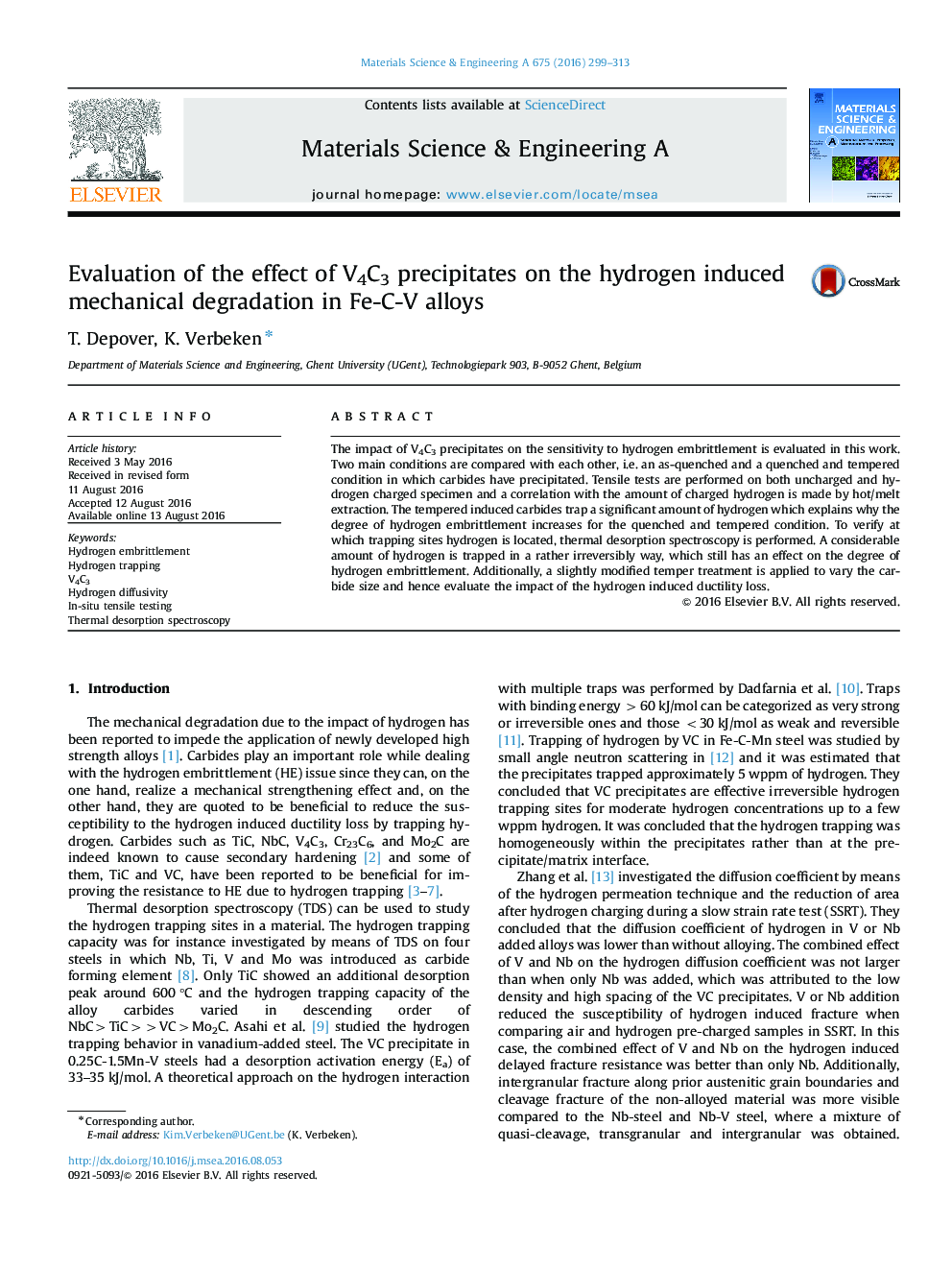| Article ID | Journal | Published Year | Pages | File Type |
|---|---|---|---|---|
| 1573039 | Materials Science and Engineering: A | 2016 | 15 Pages |
Abstract
The impact of V4C3 precipitates on the sensitivity to hydrogen embrittlement is evaluated in this work. Two main conditions are compared with each other, i.e. an as-quenched and a quenched and tempered condition in which carbides have precipitated. Tensile tests are performed on both uncharged and hydrogen charged specimen and a correlation with the amount of charged hydrogen is made by hot/melt extraction. The tempered induced carbides trap a significant amount of hydrogen which explains why the degree of hydrogen embrittlement increases for the quenched and tempered condition. To verify at which trapping sites hydrogen is located, thermal desorption spectroscopy is performed. A considerable amount of hydrogen is trapped in a rather irreversibly way, which still has an effect on the degree of hydrogen embrittlement. Additionally, a slightly modified temper treatment is applied to vary the carbide size and hence evaluate the impact of the hydrogen induced ductility loss.
Keywords
Related Topics
Physical Sciences and Engineering
Materials Science
Materials Science (General)
Authors
T. Depover, K. Verbeken,
